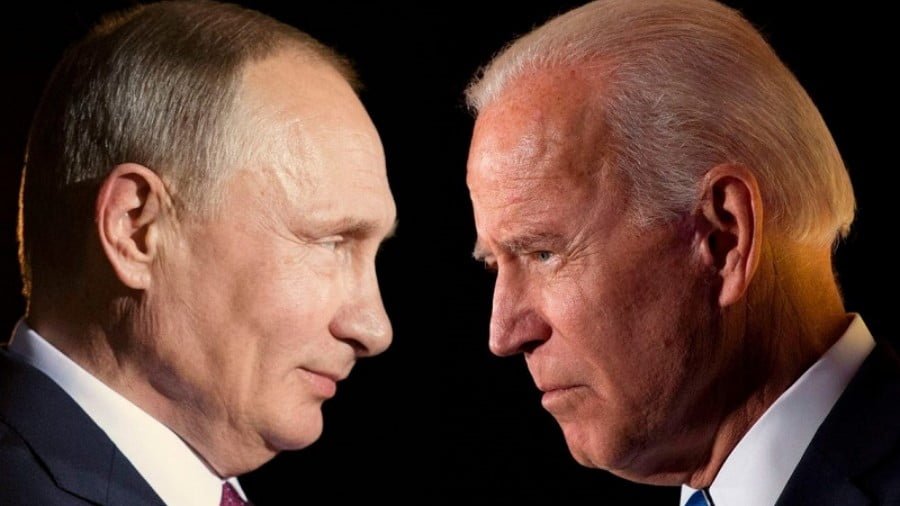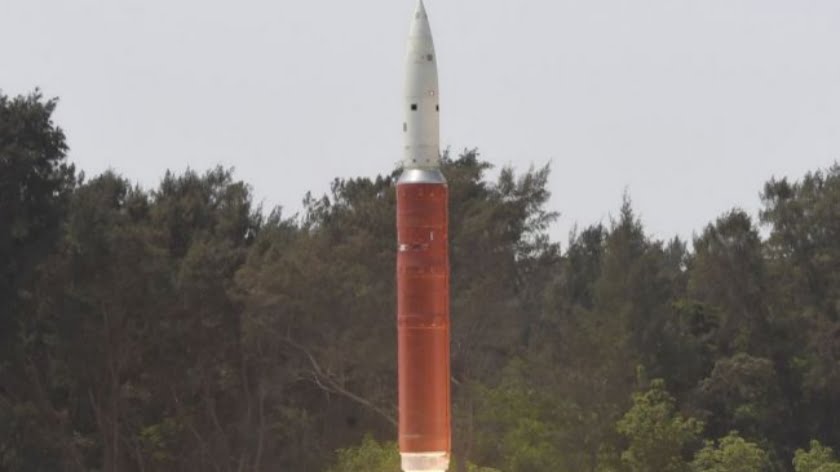Republicans Should Applaud Biden’s New Approach to Russia
Biden is surprisingly attempting to accomplish what Trump was unable to pull off due to selfishly politicized “deep state” pressure at the time, and that’s responsibly regulate the US’ comprehensive competition with Russia so as to free up the strategic resources to more aggressively “contain” China, which should therefore earn him the applause of every Republican.
In a surprising twist that perhaps nobody ever saw coming, Biden is attempting to accomplish what Trump was unable to pull off due to selfishly politicized pressure from his country’s permanent military, intelligence, and diplomatic bureaucracies (“deep state”) at the time, and that’s responsibly regulate the US’ comprehensive competition with Russia so as to free up the strategic resources to more aggressively “contain” China. This observation is backed up by a fast-moving sequence of events which includes the unexpected de-escalation in Ukraine in April, the meeting between their Foreign Ministers in Reykjavik last month, Washington’s near-simultaneously waive most Nord Stream II sanctions, the Pentagon’s subsequent announcement that it doesn’t regard Russia as an “enemy”, and the upcoming Putin-Biden Summit later this week in Geneva.
I explained in my recent analyses for CGTN and the Russian International Affairs Council (RIAC) that this is attributable to the “deep state” finally realizing the futility of attempting to simultaneously “contain” Russia and China. I noted last November that both the pro-Trump and pro-Biden factions of the country’s “deep state” were in agreement with respect to the view that China is the US’ top strategic competitor, but they still differed at the time over whether the People’s Republic or the Eurasian Great Power respectively represented the greatest threat. There now seems to be no difference of view over this issue as evidenced by the Biden Administration picking up the anti-Chinese torch that the Trump one left it through the continuation of practically every one of his hostile policies, especially when it comes to the trade war and Xinjiang.
It’s not the case that the Democrats’ “deep state” allies suddenly had a change of heart and magically transformed into political Russophiles, but simply that they realized just how counterproductive the policies that they pressured Trump to implement over the past few years were for their country’s grand strategy. In addition, as I mentioned in my earlier cited RIAC analysis, one of Trump’s most important legacies was purging his “deep state” (and especially its military faction that was always most closely aligned with his worldview) of all Chinese-friendly influences. This created an irreversible situation whereby the fading unipolar superpower was forced by strategic momentum to continue his anti-Chinese crusade since there was no going back after the military began to implement his many anti-Chinese doctrines. The Democrats simply had to accept this.
They therefore didn’t decide to reach out to Russia from a position of strength, but of weakness, at least relative to the zero-sum perspective of the US-Chinese New Cold War. The US might still be more powerful than Russia in everything other than hypersonic weaponry (the importance of which mustn’t be downplayed of course), but this actually enables it to more comfortably make some so-called “concessions” in the interests of relieving pressure along the Eurasian Great Power’s Western flank so as to free up those resources to more aggressively “contain” China. The decisions to de-escalate this spring’s US-provoked tensions between Ukraine and Russia (speculatively initiated by the remaining members of the “deep state’s” anti-Russian faction so as to sabotage the Biden Administration’s planned outreaches) and waive most Nord Stream II sanctions prove this.
Unlike what some cynics might think, none of those moves are “just for show” or to “trick Russia” since they created very real consequences for some of the US’ regional relationships. The Prime Minister of Poland, which is among one of the world’s most politically Russophobic states due to its practically pathological “negative nationalism” that’s directed against its historical neighbor, very strongly condemned what he described as Biden’s “180-degree change of policy” towards Moscow in a recent interview with Newsweek. His Foreign Minister then expressed very deep regret over Biden’s refusal to meet with regional leaders, including Ukraine’s, ahead of this week’s summit with Putin. From the looks of it, the US might pull back some of its support for the Polish-led “Three Seas Initiative” (3SI) as a “goodwill gesture” towards Russia.
No matter what the tangible outcome of the upcoming summit might be, there’s no denying that an incipient rapprochement of sorts is in the works between the US and Russia, driven as it is by the American “deep state’s” desire to refocus more of their strategic resources on “containing” what both of its factions nowadays regard as the seemingly more pressing challenge posed by China. It was already described above how this is negatively impacting some of the US’ regional partnerships, though Washington knows that those countries need it more than the reverse, hence why it’s not afraid to “compromise” on some of their interests as part of a grander deal that it might be secretly working out with Moscow in pursuit of a “New Detente” sometime in the future. These observations speak to how serious the US is about recalibrating its grand strategy.
Nevertheless, there’s always the chance that something could go wrong, especially considering that there still remain some dissident “deep state” members who are firmly opposed in principle to any rapprochement with Russia. As was earlier speculated, it might very well have been these forces that sought to provoke a Russian-Ukrainian War earlier this spring, and it also can’t be discounted that they were the ones who provoked Biden to agree with his interviewer around that time that President Putin is a so-called “killer” by possibly pressuring that journalist to ask him such a scandalous question that he couldn’t realistically disagree with on TV. Those subversive efforts have thus far failed, but similar ones might soon be attempted once again in Ukraine, Belarus, or the South Caucasus (specifically Georgia).
As it presently stands, though, it certainly seems to be the case that the US’ four-year-long “deep state” (civil) war is finally drawing to a close as both ideological factions unite behind their shared desire to “contain” China as effectively as possible. This in turn necessitates a pragmatic recalibration of American strategy towards Russia, ergo Biden’s outreaches that were previously impossible to pull off under Trump due to prior “deep state” differences of grand strategic vision regarding the disagreement over whether to more aggressively “contain” Russia or China. America is arguably in a more disadvantageous position of the two when it comes to its ongoing New Cold War with China, hence why it’s already undertaken some mild unilateral “concessions” related to Nord Stream II in pursuit of its rapprochement with Russia, but a lot of work still remains to be done.







